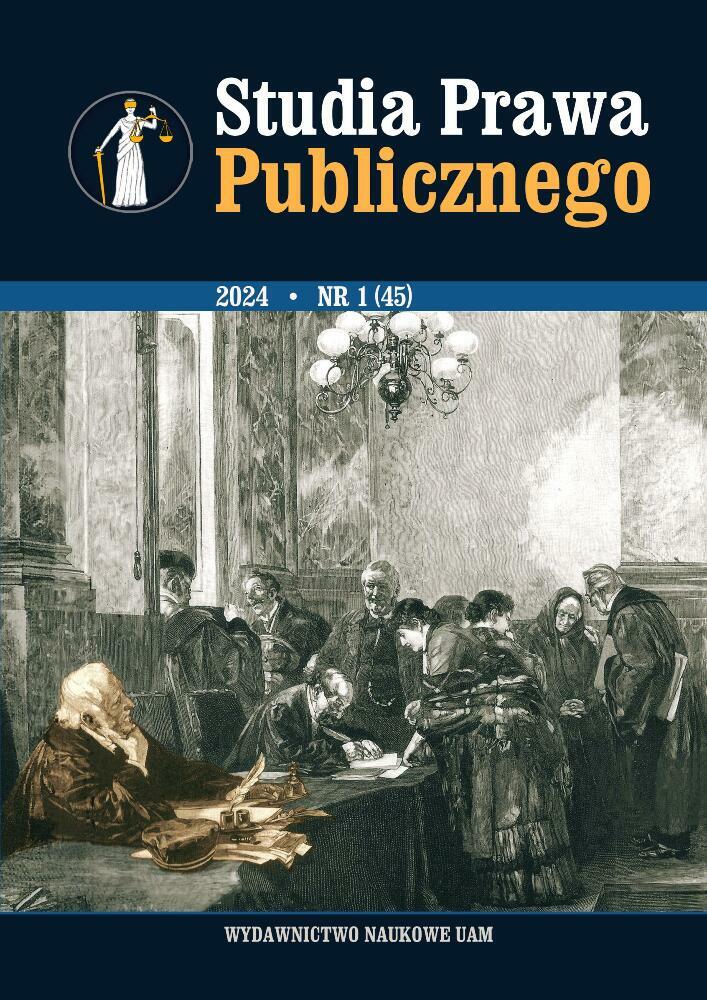Abstrakt
The article discusses the procedure for financing public tasks commissioned by the executive bodies of local government in a non-open competition mode, regulated in Art. 19a of the Act on Public Benefit and Volunteering, which is the basic legal act regulating the functioning of non-governmental organizations in Poland. Commissioning the implementation of public tasks may take the form of entrusting the implementation of a public task or supporting the implementation of a public task. The basic form of commissioning public tasks by local government administration bodies is the competition procedure. It allows the principle of competitiveness and transparency of this process to be maintained. However, the legislator provided for the possibility of commissioning the implementation of public tasks also in a non-competition mode. By creating this possibility of commissioning public tasks, it introduced numerous restrictions for this mode, thanks to which this procedure is secondary to the basic form of commissioning public tasks by way of an open competition. The purpose of the discussion here is to analyze the procedure in matters relating to outsourcing the implementation of public tasks to non-governmental organizations by local government administration bodies within the meaning of the above-mentioned Act in a non-competition manner. The article also contains proposals for amending the regulation in question to adapt it to the currently existing socio-economic relations, because this regulation has been in force for over twenty years and requires changes, which results from the previous experience in its application.
Bibliografia
Charycka B., Gumkowska M., Bednarek J., Kondycja organizacji pozarządowych 2021 – najważniejsze fakty, Warszawa 2022.
Chruściel A., Rola zlecania zadań publicznych w kształtowaniu koncepcji dobrego rządzenia, „Administracja. Teoria, Dydaktyka, Praktyka” 2014, nr 3(36), s. 95–121.
Fleszer D., Samorząd terytorialny jako wspólnota obywatelska, „Roczniki Administracji i Prawa” 2016, nr 16(1), s. 99–114.
Kmak M., Kontrola administracji publicznej – ujęcie systemowe (wybrane aspekty), „Homo Politicus” 2018, nr 13, s. 89–102. DOI: https://doi.org/10.25312/2391-5110.13/2018_07mk
Królikowska-Olczak M., Zasada uczciwej konkurencji na tle nowej regulacji zamówień publicznych, „Prawo Zamówień Publicznych” 2021, nr 2(69), s. 13–22.
Kubalski G.P., Skóbel B., Ustawa o działalności pożytku publicznego i o wolontariacie.
Komentarz, Warszawa 2020.
Lachiewicz W., System prawa dotacyjnego, w: Dotacje z budżetów jednostek samorządu terytorialnego, pod red. W. Lachiewicza, A. Talika, Warszawa 2017, s. 3–16.
Liżewski S., Ostapowicz E., Finanse i sprawozdania organizacji pozarządowych, Warszawa 2020.
Malarewicz-Jakubów A., Tanajewska R., Prawne i ekonomiczne aspekty outsourcingu, „Optimum. Studia Ekonomiczne” 2014, nr 4(70), s. 231–245. DOI: https://doi.org/10.15290/ose.2014.04.70.16
Miernik A., Problematyka podstawy prawnej postępowania w sprawie zwrotu dotacji udzielanych z budżetu jednostek samorządu terytorialnego, „Prawo Budżetowe Państwa i Samorządu” 2016, nr 4(4), s. 83–95. DOI: https://doi.org/10.12775/PBPS.2016.024
Stahl M., Zagadnienia ogólne, w: System Prawa Administracyjnego, t. 6, Podmioty administrujące, pod red. R. Hausera, Z. Niewiadomskiego, A. Wróbla, Warszawa 2011, s. 1–96.
Stawiński M., Ustawa o finansach publicznych. Komentarz, Warszawa 2019. Szymkow B., Uspołecznienie a prywatyzacja zadań publicznych w świetle rozwoju społeczeństwa obywatelskiego, w: Trzeci sektor i ekonomia społeczna. Uwarunkowania prawne. Kierunki działań, pod red. J. Blicharz, L. Zacharko, Wrocław 2017, s. 47–54.
Warchoł I., Rola ustawy o działalności pożytku publicznego i o wolontariacie w kształtowaniu społeczeństwa obywatelskiego, w: Organizacje pozarządowe w społeczeństwie obywatelskim, pod red. A. Krachera, R. Morawskiego, Racibórz 2007, s. 163–171.
Licencja
Prawa autorskie (c) 2024 Krzysztof Księski

Utwór dostępny jest na licencji Creative Commons Uznanie autorstwa – Bez utworów zależnych 4.0 Międzynarodowe.

